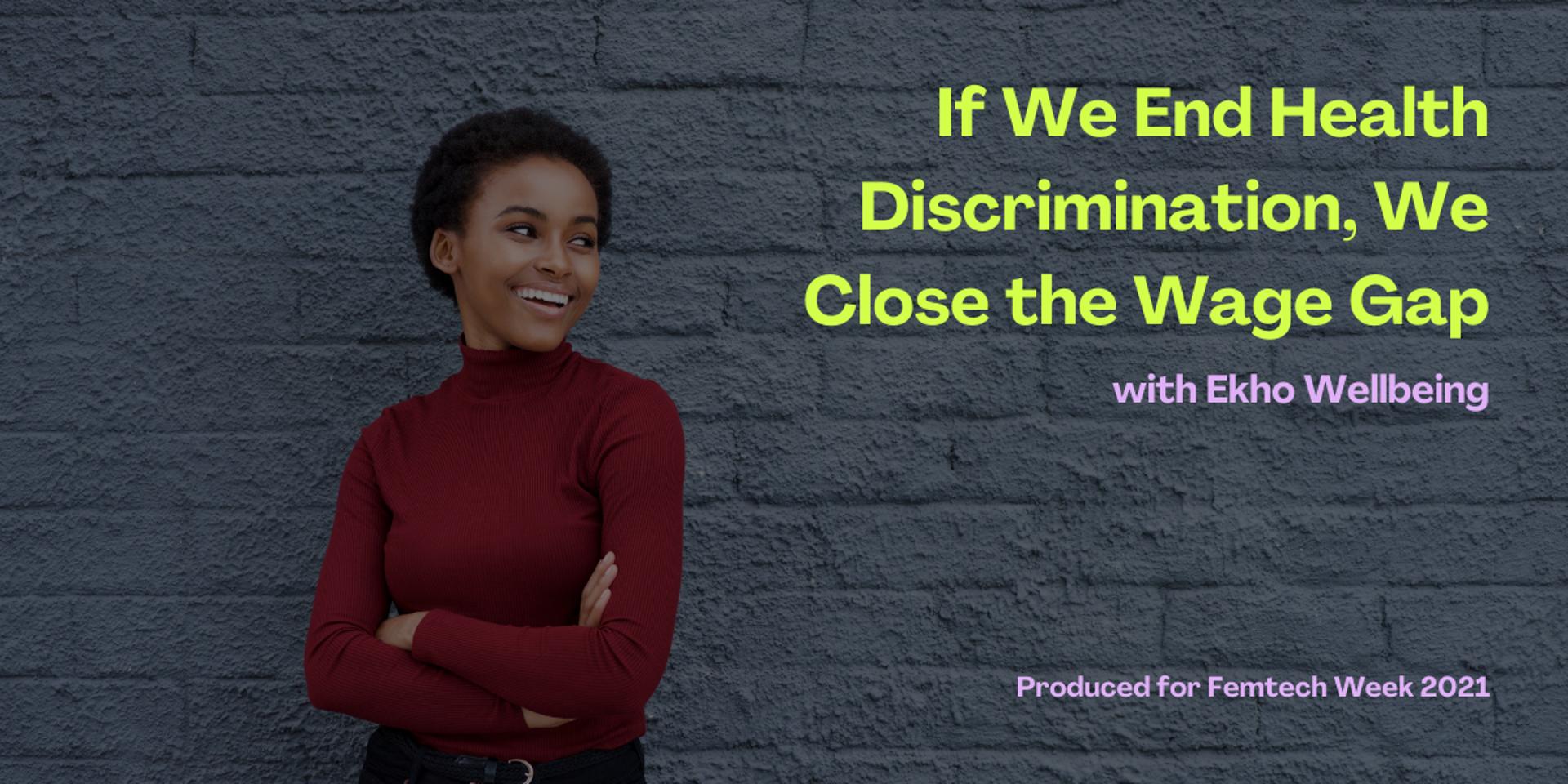
If We End Health Discrimination, We Close the Wage Gap with Ekho Wellbeing
Health discrimination is a broad term that describes the phenomenon of certain people being unable to access resources that enable good health, while others are able to access these resources. Or some don’t struggle with health issues at all and therefore don’t consider the importance of access to resources for others.
Often, the people who are not struggling with ill health and access are able to ascend more quickly in their careers, practise self care with ease, spend more time at traditional workplaces and earn more money.
They are more likely to occupy positions of power and they are subsequently the people who make decisions about the filter of workplaces, allowances like time off, flexible working and sick pay.
Women experience more ‘health issues’ than men. They typically attend more doctors appointments and experience more pain, and of course, we have to think about health intersectionally – black women and women of colour typically experience more obstacles when attempting to access healthcare resources.
So what happens when we innovate? When we provide unbiased and accessible health ed and healthcare for all people? When we change our workplaces and company cultures to support women’s bodies, to nurture their wellbeing
Women are more likely to be the primary caregivers and domestic workers in their families, in addition to having less access to healthcare resources and experiencing more pain and health issues. Globally, women earn less than men and women of colour earn less than white women.
So, by addressing health discrimination and bias in policy making, in workplaces and in the foundations of our culture, can we effectively close the wage gap for good?
CEO and Co-Founder of EKHO wellbeing, Emilie Lavinia, discusses the relationship between healthcare, data bias and the intersectional gender wealth gap.